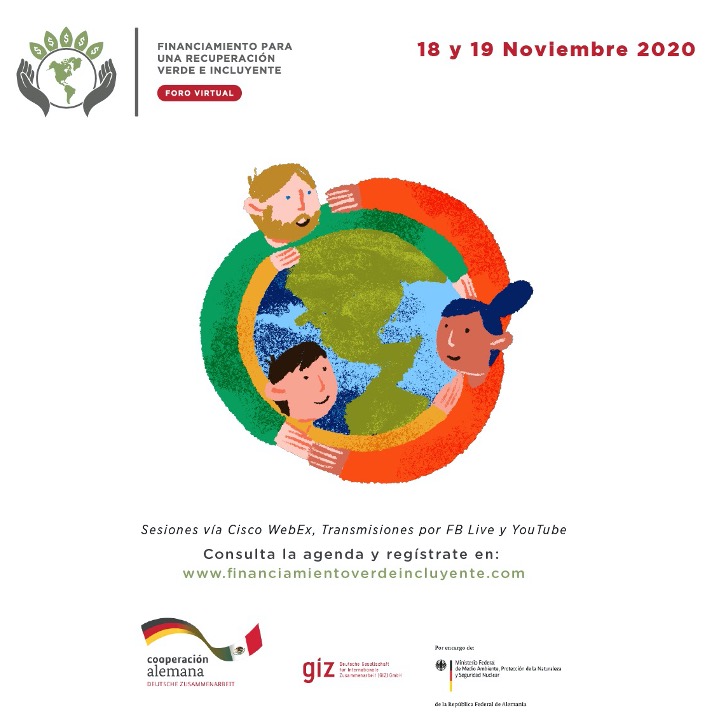In the framework of the virtual forum “Financing for a Green and Inclusive Recovery” that took place on November 18 and 19, 2020, the project “Preparation of an Emissions Trading System in Mexico (SiCEM) organized the session “Integrating Transitional Climate Risks: The Case of the Emissions Trading System”.
The aim of the session was to learn about the way in which the financial and productive sectors assess and incorporate both climate transition risks and opportunities in their strategic planning, corporate decision-making and financial disclosure related to climate, as well as the possible role of the Emissions Trading System (ETS) in these processes. Distinguished experts participated: Alan Gómez (Citibanamex Vice President of Sustainability) as moderator, as well as Alba Aguilar (Director of New Markets in the Mexican Stock Exchange) and José Ramón Ardavín (Executive Director of the Private Sector Studies Commission for Sustainable Development, CESPEDES).
It was highlighted that the recognition of transition risks in Mexico has promoted important changes. These changes include a financial community that is now convinced about the importance of understanding, evaluating and integrating risks in their strategies. In addition, the need for information, standards and clear business rules was identified to scale the green financing market. Finally, in recent years, green financial products have emerged and been labeled with environmental, social and government criteria. However, it was highlighted that the amount of green financing is still incipient.
The launch of the ETS is essential to unleash climate finance and accelerate the development of the green product market. During the session, the importance that companies should give to the ETS was mentioned, since it is an important instrument for integrating climate change into their business strategies and reducing climate financial risks. This is because it allows them to specify emission reduction goals and facilitate the management of the carbon budget, facilitate the development of mitigation projects and promote green investment. It also allows them to promote resilient business models, adapt to changes in the market and continue to be highly competitive in the future.
To access the recording of the session, click here (in Spanish).

